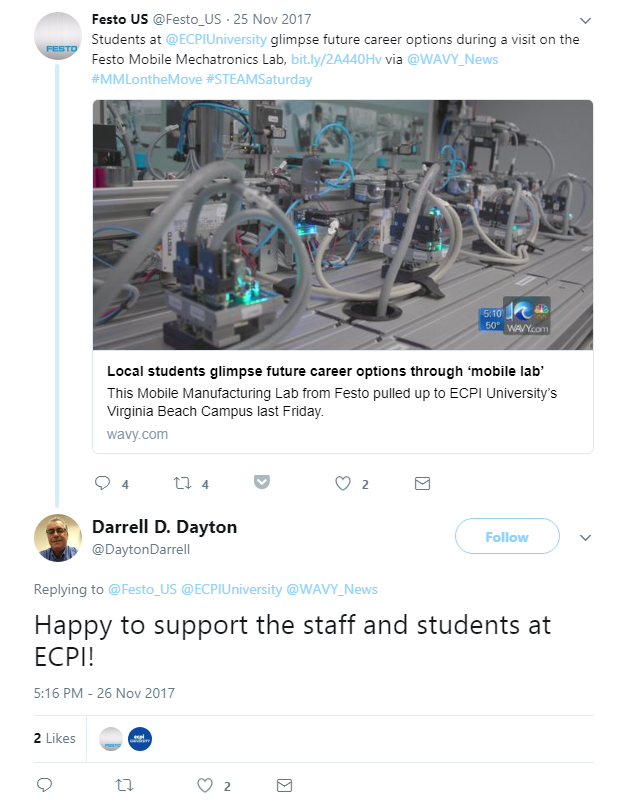Cyber Security Degree in Atlanta, GA: Where Can I Go to School?
Two of the fastest-growing areas in the first quarter of the 21st century are cybersecurity and online degrees. There is a third growth area, cybercrime, which is catalyzing the expansion of the other two. In 2017 alone, all three billion Yahoo accounts were breached, 143 million US customers of the credit rating agency, Equifax, were exposed to potential identity theft as a result of a hack, and malware was installed on point-of-sale terminals of the American restaurant chain Chipotle. Rock-solid cybersecurity is a business essential now and for the near future.
In addition to offering students the chance to study at their own pace, according to a timetable that dovetails with their personal circumstances, online degrees offer a broad range of topics that is unhindered by geographical proximity. Rather than being in isolation, students can obtain help at the click of a mouse, thanks to social networking opportunities. A degree in cyber and network security, obtainable for eager cyber security students living or working in Atlanta, GA, is just one of the newly opened opportunities.
The Demand for Cybersecurity Personnel
As a career choice, cybersecurity is both secure and lucrative. The latest Bureau of Labor Statistics forecast the demand for information security analysts from 2016 to 2026 to increase by 28 percent. That's 15 percent faster than the demand for other computer-related occupations and 21 percent faster than all occupations.
The median average salary for an information security analyst in 2016 was $92,600, while the median average for all occupations was $37,040. All of these jobs demand at least a bachelor's degree in a relevant subject, such as computer science, information assurance programming, or business administration.
The Growing Popularity of Online Education
Between the 1890s and the 1990s, distance learning in the United States was confined to paper-based courses delivered by the postal service. These programs operated on the fringes of adult education. By 2000, institutions of higher learning began to realize the benefits of making degrees accessible online.
Online degree programs offer certain benefits to students, primarily flexibility. Mature students with domestic or employment responsibilities can fit their studies around their own timetable. Younger students, too, are now opting in greater numbers for the online approach. In 2012, for instance, the percentage of online graduate students under the age of 25 was 13 percent; By 2015, that proportion had grown to 19 percent.
Because learning is self-paced, students can dig deeply into areas that they're struggling with and seek extra help. If they have to go over something several times in order for it to sink in, they have that opportunity. For the same reason, students can spend more time in an aspect of the work that particularly interests them. In a conventional setting, the teacher and the institution set the pace.
Another benefit students derive from pursuing an online degree is choice. Because you are not limited to places within an easy commute from home, you have a broader choice of institutions with which to study. Rural students now have access to hundreds of choices; whereas, in the past, they would have to take up temporary residence away from home. For the student with local responsibilities, this can be a deal-breaker and a barrier to higher education.
Online Cybersecurity Degree – The Perfect Match
The beauty of this fabulous juxtaposition of the planets that created the scenario wherein online degrees became more popular and more accessible at the same time as demand for information systems analysts exploded like a supernova is that the vast career opportunities that were once available only to the lucky few are now accessible to everybody. This is good for all concerned. Students are no longer barred by geography or personal circumstances from pursuing their ambitions and employers have a larger pool of trained workers.
A young person or career-changer in Georgia, which may not have a suitable local institution, can pursue a Bachelor of Science in Computer and Information Science with a Major in Cyber and Network Security as part of an online degree program. On the other side, Atlanta employers like Turner, Coca-Cola, and McAfee can recruit their cybersecurity workforce from a pool of homegrown candidates, saving them money in relocation costs and gaining a workforce with strong ties to the local community. Everybody wins.
Are you a future cyber security expert living in Georgia? If you want to earn a Bachelor of Science Degree in Computer and Information Science with a Major in Cyber and Network Security and do it entirely online, ECPI University offers this opportunity at an accelerated rate. For more information about this exciting program, connect with a knowledgeable admissions representative today.
It could be the Best Decision You Ever Make!
DISCLAIMER – ECPI University makes no claim, warranty, or guarantee as to actual employability or earning potential to current, past or future students or graduates of any educational program we offer. The ECPI University website is published for informational purposes only. Every effort is made to ensure the accuracy of information contained on the ECPI.edu domain; however, no warranty of accuracy is made. No contractual rights, either expressed or implied, are created by its content.
Gainful Employment Information – Cyber and Network Security - Bachelor’s
For more information about ECPI University or any of our programs click here: http://www.ecpi.edu/ or http://ow.ly/Ca1ya.





